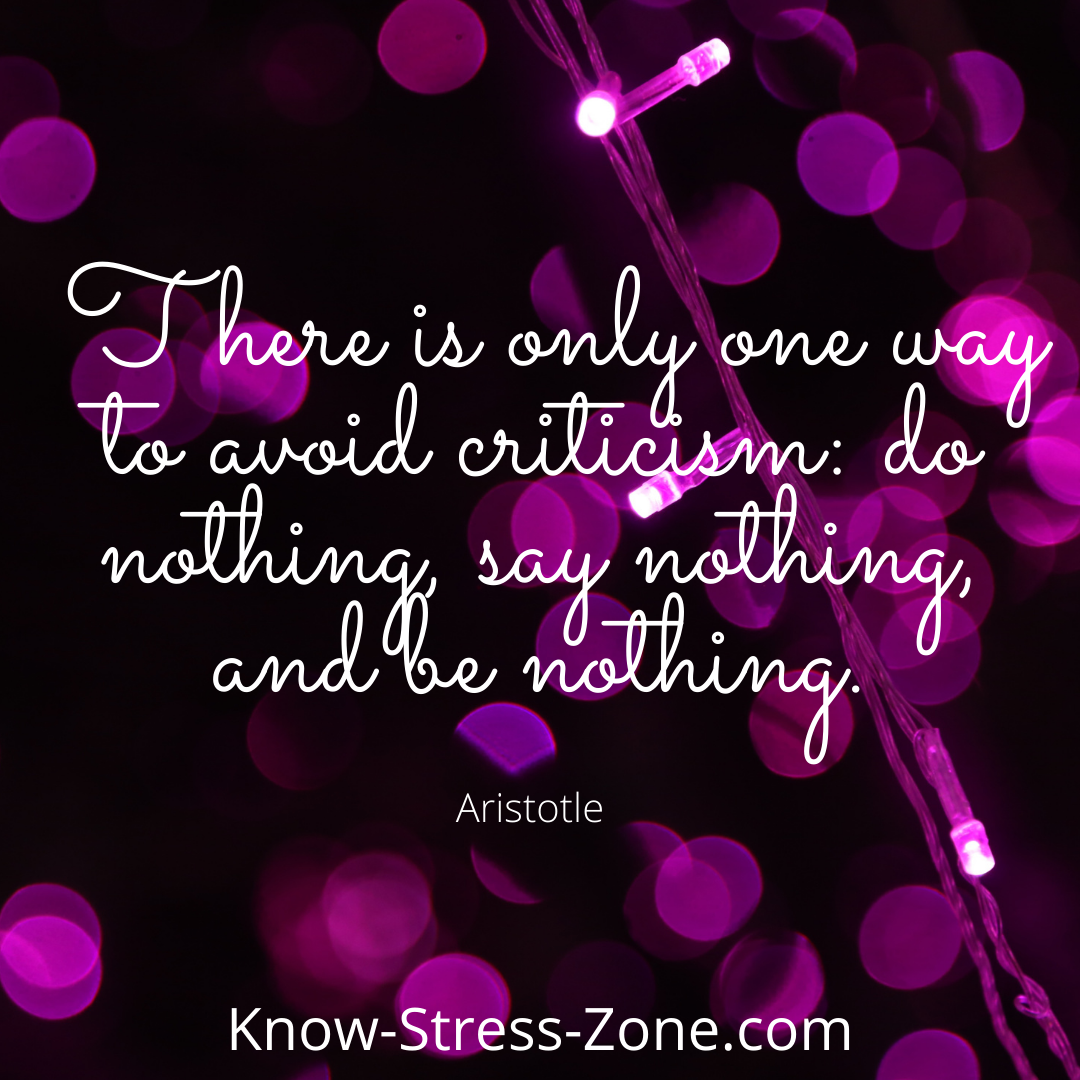Managing Criticism: 8 Steps to Help You Deal
Managing Criticism is one of the greatest challenges we can face. It can make you feel as though you want to lash out at the person critiquing you. I’m talking laser beams coming out of your eyes and turning the offending party into a smoldering pile of rubble.
|
I’ve been on both sides of such an exchange. I’ve critiqued and been critiqued. I can tell you from personal experience that I’ve handled both sides poorly and not so poorly. As the saying goes: “It’s not what you say, it’s how you say it.” I’m guilty as charged. It can come from frustration about how things are going in one’s life. It could be one’s own career failures where such frustration is turned on others. Not only is this unfair, it’s wrong. I messed up the other day and feel like crap because I made the other person feel like crap. I could have done better and presented my critique in a not so blunt way. I must accept this shortfall and do everything in my power to do better in the future – focusing sharply on the feelings of others. |
On the flip side, providing criticism can also come from feeling frustrated for the person you are critiquing.
Receiving and processing criticism is crucial to human evolution. It must be presented, received, processed, and perhaps accepted.
An important component is realizing that not all criticism is bad. It can actually come from a good place – wanting to bring attention to something that may be holding someone back. It’s still difficult for that person to hear, but it must be considered as an attempt to help them.
If the receiving party truly feels the criticism is unjustified, they have every right to stand up for themselves and present their counterargument.
I would like to offer the following suggestions for managing criticism:
- Listen to what the other person is saying or suggesting.
- Pause and give it some consideration. Is it something you can really improve upon?
- Ask yourself if the criticism is really about you, or is it the other person who is upset with themselves?
- Consider the possibility that the other person wants to help you.
- Accept the criticism. If the delivery of such criticism is done poorly or you feel that their criticism is unjustified, then let that person know how you feel.
- Work on implementing their suggestions - only if you feel they are legitimate.
I realize this is not an easy process, but managing criticism (offering and receiving) is an important life skill worth developing. I certainly need to do so. Here’s to human evolution. ~Ted
Managing Criticism: 8 Steps to Help You Deal ~parts adapted via Psychologytoday.com
|
1. Recognize your defensiveness We listen defensively when we listen for what we don’t agree with. Under fire? Catch yourself when you see that you are focusing only on the inaccuracies, distortions, and exaggerations that will inevitably be there. Defensiveness starts in the body. It makes us tense and on guard, unable to listen and take in new information. Take slow, deep breaths, and do what you can to calm yourself. 3. Listen only to understand |
Listen only to discover what you can agree with. Do not interrupt, argue, refute, or correct facts, or bring up your own criticisms and complaints. If your points are legitimate, that’s all the more reason to save them for a different time, when they can be a focus of the conversation and not a defense strategy.
4. Apologize for your part
The ability to apologize indicates to the critical party that you’re capable of taking responsibility, not just evading it. It will also help shift the exchange out of combat mode and into collaboration. Save your thoughts about their part until later.
5. Let the critical or angry person know that you will continue to think about the conversation
Even if nothing has been resolved, tell the other person that you take his or her thoughts and feelings seriously: “It’s not easy to hear what you’re telling me, but I want you to know that I’m going to give it a lot of thought.”
6. Don’t listen when you can’t
It’s fine to tell the other person that you want to have the conversation and that you recognize its importance, but you can’t have it right now: “I’m too tired and preoccupied to really listen.” Offer a specific time to re-open the conversation, so that you can give it your best attention.
7. Speak your own truths
You need to tell the critical person how you see things differently. It won’t help your relationship to get into the pattern of being an overly accommodating, peace-at-any-price type of individual who avoids conflict at any cost. Still, timing and tact are everything. It’s usually best to save your different point of view for a future conversation, when you’ll have a better chance of being heard. Remember that even the most difficult things can be said with kindness.
8. Draw the line at insults
There may be a time to sit through an initial blast, but not if rudeness has become a pattern in your relationship, rather than an uncommon occurrence. Exit from rudeness, while offering the possibility of another conversation: “I want to hear what bothers you, but I need you to approach me with respect.”
Managing Criticism and More Self-Esteem Goodness Managing Criticism

